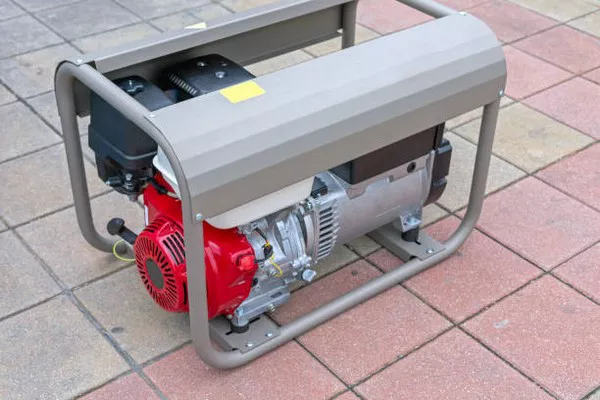Generators are invaluable tools, providing backup power during outages and enabling operations in remote locations where electricity is unavailable. However, their usage comes with a set of guidelines and safety precautions, particularly when dealing with weather conditions. One common question that arises is whether it is necessary to cover a generator in the rain. This article will explore the reasons for covering a generator, the potential risks of exposure to rain, best practices for using generators in wet conditions, and the types of covers that can be used.
The Importance of Protecting Your Generator
Generators are complex machines with sensitive electrical components. When exposed to rain, several risks come into play:
Electrical Short Circuits: Water is a conductor of electricity. If rainwater infiltrates the generator, it can cause short circuits, potentially damaging the internal components and leading to costly repairs or complete failure of the unit.
Corrosion: Prolonged exposure to moisture can lead to the corrosion of metal parts within the generator, compromising its structural integrity and functionality over time. This is particularly detrimental to the engine and alternator.
Safety Hazards: Using a generator in the rain without adequate protection can pose significant safety hazards. Water in contact with electrical outlets and components increases the risk of electric shocks, which can be fatal.
Legal and Manufacturer Guidelines
Many generator manufacturers provide specific guidelines regarding the operation of their products in wet conditions. These instructions often emphasize the importance of keeping the generator dry. Ignoring these guidelines can void warranties and lead to non-compliance with local safety regulations.
For instance, the Occupational Safety and Health Administration (OSHA) and the National Fire Protection Association (NFPA) have regulations and codes that require generators to be used in a manner that minimizes the risk of electric shock and fire hazards. Ensuring that a generator is adequately protected from rain aligns with these safety standards.
Best Practices for Using Generators in Wet Conditions
To safely operate a generator in the rain, it is essential to follow several best practices:
Use a Generator Tent or Cover: A generator tent or cover is specifically designed to protect the unit from rain while ensuring adequate ventilation. These covers are typically made from durable, water-resistant materials and are structured to allow exhaust gases to escape safely.
Positioning the Generator: Place the generator on a dry, elevated surface to prevent water from pooling around it. This reduces the risk of water splashing onto the generator and minimizes the potential for electrical hazards.
Grounding the Generator: Properly grounding the generator is crucial to avoid electrical shocks. Follow the manufacturer’s instructions for grounding, which usually involves connecting the generator to a ground rod driven into the earth.
Use a Transfer Switch: A transfer switch prevents back-feeding electricity into the grid, which can be dangerous for utility workers and others. This is especially important in wet conditions where the risk of electric shock is higher.
Regular Maintenance: Keep your generator well-maintained, checking for any signs of wear or damage that could be exacerbated by exposure to rain. Regularly inspect and replace worn-out parts to ensure optimal performance.
Types of Generator Covers
There are several types of covers available to protect generators from rain, each with its own set of features:
Permanent Enclosures: These are solid structures that provide full protection from the elements. They are often custom-built and can include soundproofing materials to reduce noise. Permanent enclosures are ideal for home standby generators but can be expensive.
Portable Canopies: Portable canopies or tents are designed to be set up quickly and can be used for various types of generators. They are made from waterproof materials and have open sides to allow for ventilation and exhaust.
Plastic Sheds: Small plastic sheds can be used to house a generator, providing good protection from rain while ensuring that there is enough airflow to prevent overheating. These sheds are more durable than tents and can be secured to prevent unauthorized access.
Generator Skirts: Some covers are designed to fit around the generator like a skirt, covering the top and sides while leaving the bottom open for air circulation. These skirts are typically made from heavy-duty, weather-resistant fabric.
DIY Generator Covers
For those who prefer a hands-on approach, creating a DIY generator cover can be an effective solution. Using materials such as waterproof tarps, PVC pipes, and bungee cords, a custom cover can be fashioned to fit the specific dimensions of your generator. However, it is crucial to ensure that any DIY cover provides adequate ventilation to prevent overheating and allows for safe exhaust of fumes.
See also What Size Generator Do You Need To Run A Furnace
Conclusion
Covering a generator in the rain is not just a recommendation; it is a necessity to ensure safety, maintain functionality, and prolong the life of the unit. The risks of electrical short circuits, corrosion, and safety hazards make it imperative to protect generators from moisture. By adhering to manufacturer guidelines, following best practices, and choosing the appropriate type of cover, you can safely operate your generator in wet conditions.
In summary, whether through a permanent enclosure, a portable canopy, or a DIY solution, ensuring your generator is covered and protected from the rain is essential for safe and reliable operation. Prioritizing generator protection not only safeguards the equipment but also enhances the safety of everyone relying on its power.

